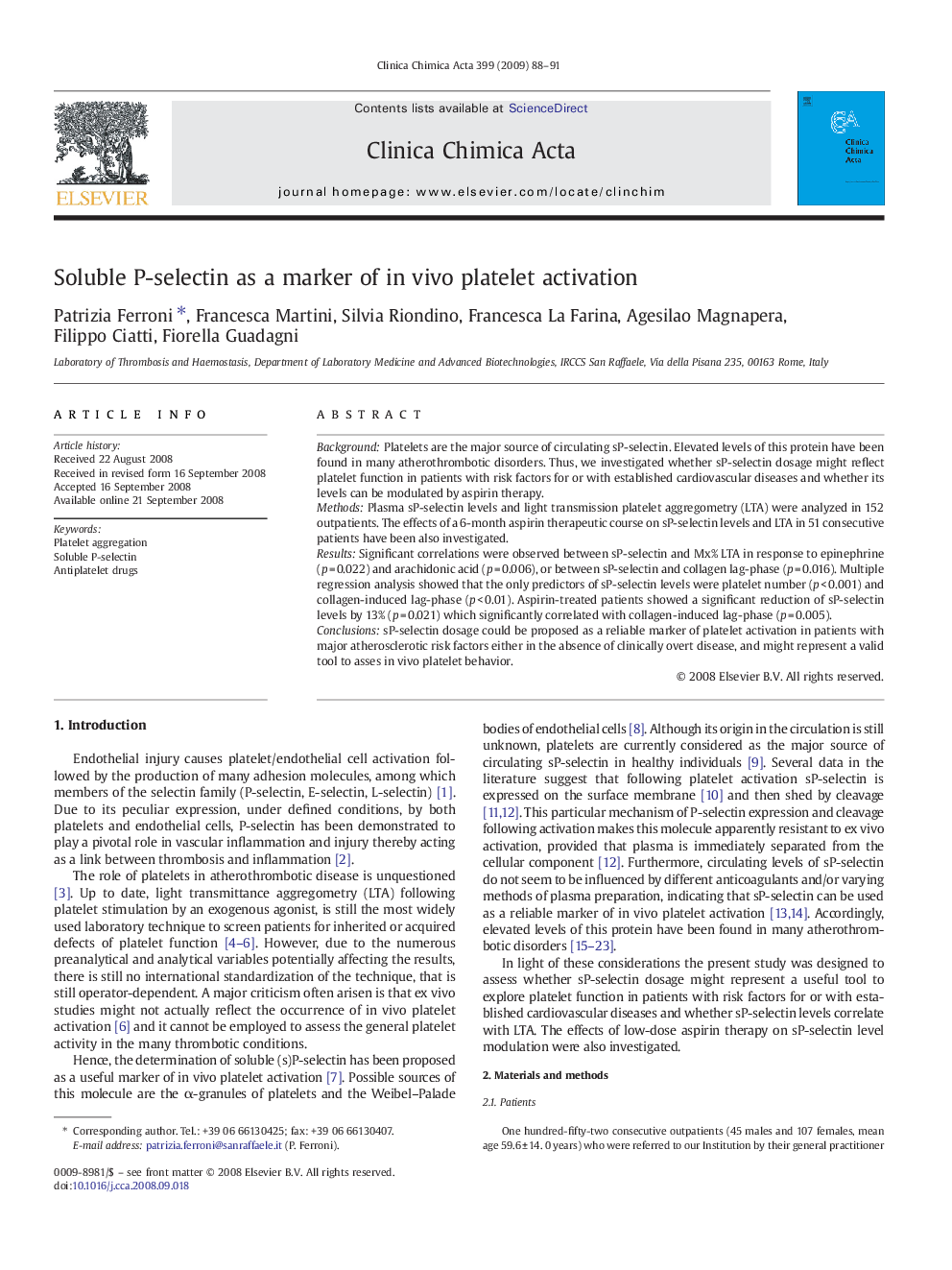| Article ID | Journal | Published Year | Pages | File Type |
|---|---|---|---|---|
| 1966816 | Clinica Chimica Acta | 2009 | 4 Pages |
BackgroundPlatelets are the major source of circulating sP-selectin. Elevated levels of this protein have been found in many atherothrombotic disorders. Thus, we investigated whether sP-selectin dosage might reflect platelet function in patients with risk factors for or with established cardiovascular diseases and whether its levels can be modulated by aspirin therapy.MethodsPlasma sP-selectin levels and light transmission platelet aggregometry (LTA) were analyzed in 152 outpatients. The effects of a 6-month aspirin therapeutic course on sP-selectin levels and LTA in 51 consecutive patients have been also investigated.ResultsSignificant correlations were observed between sP-selectin and Mx% LTA in response to epinephrine (p = 0.022) and arachidonic acid (p = 0.006), or between sP-selectin and collagen lag-phase (p = 0.016). Multiple regression analysis showed that the only predictors of sP-selectin levels were platelet number (p < 0.001) and collagen-induced lag-phase (p < 0.01). Aspirin-treated patients showed a significant reduction of sP-selectin levels by 13% (p = 0.021) which significantly correlated with collagen-induced lag-phase (p = 0.005).ConclusionssP-selectin dosage could be proposed as a reliable marker of platelet activation in patients with major atherosclerotic risk factors either in the absence of clinically overt disease, and might represent a valid tool to asses in vivo platelet behavior.
